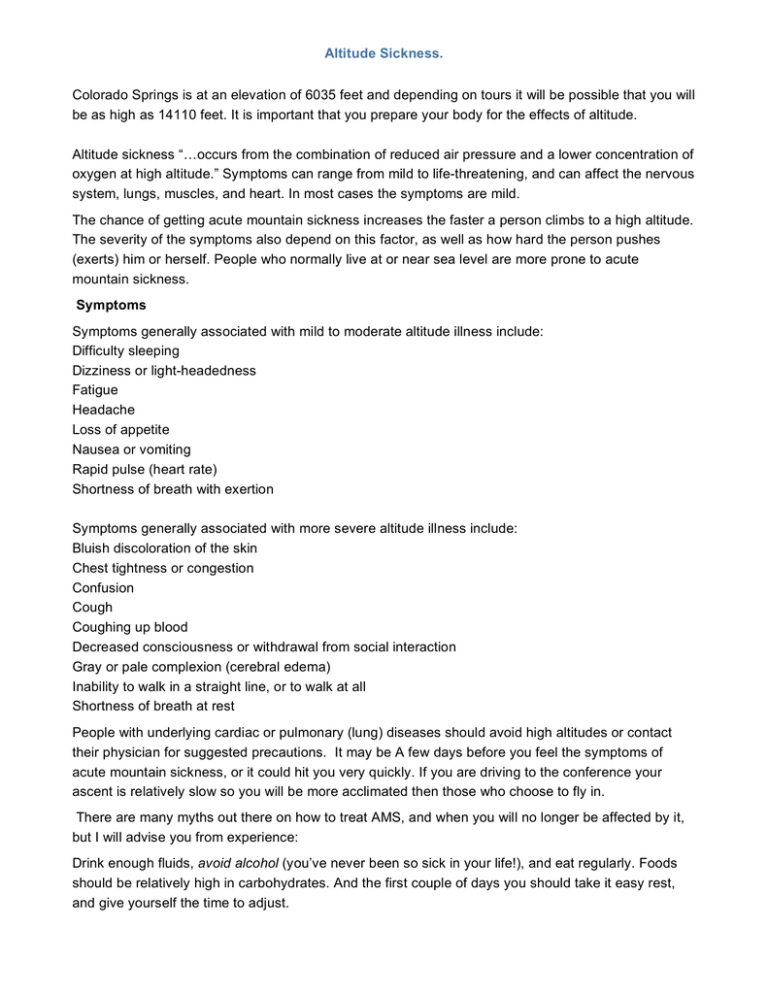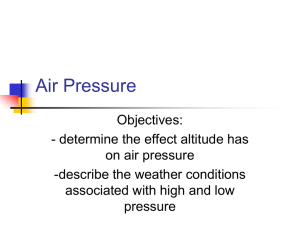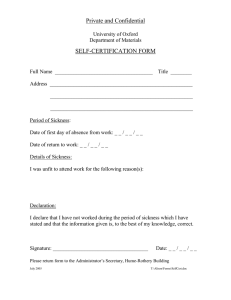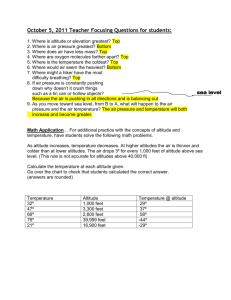Altitude Sickness. Colorado Springs is at an elevation of 6035 feet
advertisement

Altitude Sickness. Colorado Springs is at an elevation of 6035 feet and depending on tours it will be possible that you will be as high as 14110 feet. It is important that you prepare your body for the effects of altitude. Altitude sickness “…occurs from the combination of reduced air pressure and a lower concentration of oxygen at high altitude.” Symptoms can range from mild to life-threatening, and can affect the nervous system, lungs, muscles, and heart. In most cases the symptoms are mild. The chance of getting acute mountain sickness increases the faster a person climbs to a high altitude. The severity of the symptoms also depend on this factor, as well as how hard the person pushes (exerts) him or herself. People who normally live at or near sea level are more prone to acute mountain sickness. Symptoms Symptoms generally associated with mild to moderate altitude illness include: Difficulty sleeping Dizziness or light-headedness Fatigue Headache Loss of appetite Nausea or vomiting Rapid pulse (heart rate) Shortness of breath with exertion Symptoms generally associated with more severe altitude illness include: Bluish discoloration of the skin Chest tightness or congestion Confusion Cough Coughing up blood Decreased consciousness or withdrawal from social interaction Gray or pale complexion (cerebral edema) Inability to walk in a straight line, or to walk at all Shortness of breath at rest People with underlying cardiac or pulmonary (lung) diseases should avoid high altitudes or contact their physician for suggested precautions. It may be A few days before you feel the symptoms of acute mountain sickness, or it could hit you very quickly. If you are driving to the conference your ascent is relatively slow so you will be more acclimated then those who choose to fly in. There are many myths out there on how to treat AMS, and when you will no longer be affected by it, but I will advise you from experience: Drink enough fluids, avoid alcohol (you’ve never been so sick in your life!), and eat regularly. Foods should be relatively high in carbohydrates. And the first couple of days you should take it easy rest, and give yourself the time to adjust.




